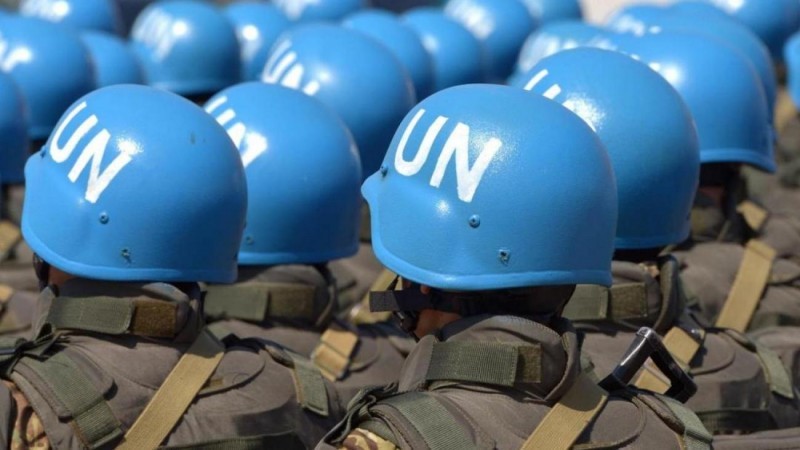Viewing results 1 - 6 of 15
Kazakhstan has decided to send peacekeepers to the Middle East and Africa following a proposal by President Kassym-Jomart Tokayev. At a joint session of Parliament, deputies of the Mazhilis and Senate unanimously expressed their consent to send up to 430 service personnel to participate in the United Nations missions. The initiative envisages the participation of personnel from Kazakhstan in the following missions: UN Disengagement Observer Force in the Golan Heights (UNDOF, Syria - Israel), UN Truce Supervision Organization (UNTSO, Palestine - Israel), UN Mission in the Republic of South Sudan (UNMISS, South Sudan), and the UN Interim Security Force for Abyei (UNISFA, Sudan). "The Armed Forces of Kazakhstan are ready to allocate both individual servicemen as military observers and staff officers, and specialized units: infantry, medical, reconnaissance, engineering, which are most needed in UN missions," said Minister of Defense, Ruslan Zhaksylykov. To implement this decision, an international treaty will be concluded with the UN, which will determine the obligations of the parties, as well as the issues of financial and logistical support for the participation of the contingent in the mission. Transportation of service personnel and property will be at the expense of the Kazakhstani side. This decision reflects Kazakhstan's desire to look outward, take its place on the global stage, and participate more actively in international efforts. The deployment is set to begin in March 2024.
On December 19th, 2023, the UN General Assembly adopted two resolutions initiated by Turkmenistan: “Strengthening connections between all modes of transport to achieve sustainable development goals,” and “The key role of reliable and stable energy connectivity in ensuring sustainable development." The resolution on transport was co-sponsored by 47 states, and the resolution on energy connectivity by 38 countries, the Turkmen Foreign Ministry stated. The document on cooperation in the transport sector proclaims 2026-2035 as the Decade of Sustainable Transport. The authors of the resolution invited the UN Secretary-General to continue international dialogue in this area and consider convening the Third UN Global Conference on Sustainable Transport. According to the document, the main events within the framework of the World Sustainable Transport Day in November 2024 will take place in Turkmenistan. The document on energy connectivity, meanwhile, provides for the consolidation of efforts by the international community to overcome the energy crisis facing the world, and calls for efforts to ensure the reliability and stability of cross-border supplies of energy resources. According to this document, it was proposed that the forum, “Sustainable Energy for All,” aimed at achieving Sustainable Development Goals to ensure access to reliable, sustainable and modern energy for all, be held in Turkmenistan in 2026.
Several days ago, Kazakhstan's President Kassym-Jomart Tokayev addressed the opening session of the United Nations General Assembly in New York. He also met with the UN Secretary General Antonio Guterres, who called his country "a privileged partner that is a pillar of multilateralism, a promoter and defender of peace at the global level." Guterres in response, acclaimed Kazakhstan's continuing cooperation with the UN, particularly its focus "on strengthening peace and security, achieving the Sustainable Development Goals and ensuring human rights." However, Tokayev's initiatives go still deeper than that. In a rapidly evolving global landscape, President Tokayev has articulated a series of policy proposals that not only reaffirm Kazakhstan's traditional commitment to established international norms but also introduce innovative solutions to contemporary challenges. It is particularly the newer proposals that resonate deeply with the principles of the United Nations and the broader ethos of multilateralism. "A privileged partner that is a pillar of multilateralism, a promoter and defender of peace at the global level“ -General Antonio Guterres, UN Secretary on Kazakhstan Historically, Kazakhstan has been a staunch supporter of the principles enshrined in the UN Charter, demonstrating its commitment to global peace, security and co-operation. Tokayev, a diplomatic by training, has always favoured diplomatic solutions based on the UN Charter and universally recognized international law. The crisis in Ukraine has further underscored Kazakhstan's emphasis on these principles and its belief in dialogue as the cornerstone of international relations. On the environmental front, Tokayev reaffirmed Kazakhstan's commitment to the Paris Climate Agreement and its emphasis on Climate-Positive Actions. These include investments in green-energy jobs and ending fossil fuel subsidies. He also offered new initiatives such as the Just Energy Transition Partnership (JETP) and the Project Office for Central Asia on Climate Change and Green Energy. Such progressive solutions aim to address the dual challenges of facilitating energy transition and bolstering climate resilience. The upcoming Regional Climate Summit slated for 2026 particularly underscores Kazakhstan's proactive leadership in environmental diplomacy. It showcases the country's alignment with the UN's Sustainable Development Goals (SDGs) as well as its dedication to multilateral diplomacy and consensus. Regarding trade and development, Kazakhstan's proposals at the UN play to its strength as a dynamic economy in the region. The best example of this is the proposal to establish a UN Regional Centre for SDGs for Central Asia and Afghanistan in Almaty. With its significant agricultural production, Tokayev also suggested that Kazakhstan should act as a regional food supply hub. This proposition addresses the pressing issue of food security, thus resonating with the UN's agenda. Kazakhstan's security and disarmament proposals are particularly noteworthy. While the country has always been a proponent of the Treaty on the Prohibition of nuclear weapons, Tokayev recommended a new Strategic Plan to aim for the total renunciation of nuclear weapons by 2045. This vision is in line with the UN's disarmament goals moves toward limiting nuclear proliferation. President Tokayev also put forth the idea to establish an International Agency for Biological Safety to be tasked with...



